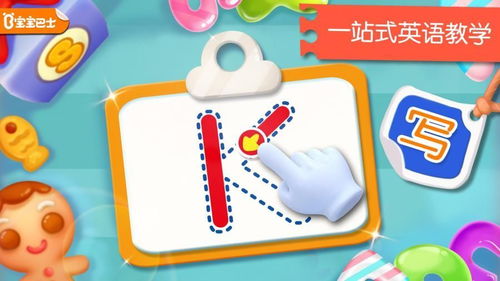来源:小编 更新:2024-12-11 11:57:16
用手机看

Interactive games have become an integral part of modern education, offering a dynamic and engaging way for learners of all ages to acquire new skills and knowledge. These games blend entertainment with education, making learning an enjoyable experience. In this article, we will explore the benefits of interactive games, their types, and how they can be effectively integrated into educational settings.

Interactive games offer numerous advantages in the educational realm. They help in:
Enhancing Engagement: Games captivate learners' attention, making the learning process more enjoyable and less monotonous.
Facilitating Retention: The interactive nature of games aids in better retention of information, as learners are actively involved in the learning process.
Developing Critical Thinking: Many games require problem-solving skills, strategic planning, and decision-making, which contribute to the development of critical thinking abilities.
Encouraging Collaboration: Group-based games foster teamwork and communication skills, as learners work together to achieve common goals.

There are various types of interactive educational games that cater to different learning styles and objectives:
Simulation Games: These games mimic real-life scenarios, allowing learners to practice skills in a safe and controlled environment.
Adaptive Learning Games: These games adjust their difficulty level based on the learner's performance, ensuring a personalized learning experience.
Memory Games: These games focus on improving memory and cognitive skills through various challenges and puzzles.
Language Learning Games: These games are designed to teach and reinforce language skills, such as vocabulary, grammar, and pronunciation.

Integrating interactive games into education can be done in several ways:
Classroom Integration: Teachers can incorporate games into lesson plans to make learning more engaging and interactive.
Flipped Classroom: Students can play educational games at home as part of their homework, allowing teachers to focus on more complex topics in class.
Online Learning Platforms: Many educational platforms offer interactive games that can be accessed by learners at their own pace.

One popular example of an interactive educational game is a language learning game. These games often feature a variety of activities, such as matching words with images, completing sentences, and engaging in conversations with virtual characters. Here's how language learning games can be beneficial:
Practical Application: Learners can practice real-life language scenarios, making the learning experience more relevant.
Reinforcement: Regular practice with language learning games helps reinforce vocabulary and grammar concepts.
Accessibility: Many language learning games are available online, making them accessible to learners of all ages and locations.

Interactive educational games have revolutionized the way we learn and teach. By incorporating these games into educational settings, we can create a more engaging, effective, and enjoyable learning experience for all. As technology continues to advance, we can expect even more innovative and engaging interactive games to emerge, further enhancing the educational landscape.

Interactive Games, Educational Technology, Learning Experience, Language Learning, Simulation Games, Adaptive Learning, Memory Games